An dà là

[2017]
Henderson-Innes
Album / Albumi: An dà là
In questi giorni di assalti ai campidogli, di uomini-bisonte e di grandi americhe finite nella polvere, una singolare canzone scritta nel 2017 metà in gaelico scozzese e metà in un inglese solenne sul quale è necessario ragionare un po'. I Mànran sono un gruppo scozzese attivo fin dal 2010 (mànran è una parola gaelica che significa qualcosa come “suono armonioso” o “melodioso”). L'anno dopo l'elezione di Donald Trump, tutto era già oltremodo chiaro su come sarebbe andata a finire; e così, anche con la gentile collaborazione di un virus e dei cosiddetti “social”, siamo finalmente entrati nel XXI Secolo. Nel 2017 i Mànran pubblicano l'album (il loro terzo in studio) di cui questa canzone è la title song: un'autentica maledizione celtica su Donald Trump, una lamentazione sul passato e un inno per il futuro. Una canzone di disperazione e di speranza. [RV]
Henderson-Innes
Album / Albumi: An dà là
In questi giorni di assalti ai campidogli, di uomini-bisonte e di grandi americhe finite nella polvere, una singolare canzone scritta nel 2017 metà in gaelico scozzese e metà in un inglese solenne sul quale è necessario ragionare un po'. I Mànran sono un gruppo scozzese attivo fin dal 2010 (mànran è una parola gaelica che significa qualcosa come “suono armonioso” o “melodioso”). L'anno dopo l'elezione di Donald Trump, tutto era già oltremodo chiaro su come sarebbe andata a finire; e così, anche con la gentile collaborazione di un virus e dei cosiddetti “social”, siamo finalmente entrati nel XXI Secolo. Nel 2017 i Mànran pubblicano l'album (il loro terzo in studio) di cui questa canzone è la title song: un'autentica maledizione celtica su Donald Trump, una lamentazione sul passato e un inno per il futuro. Una canzone di disperazione e di speranza. [RV]
Seo mar chunna sùilean òga
(Continues)
(Continues)
Contributed by Riccardo Venturi 2021/1/8 - 09:13
Song Itineraries:
Donald Trump
Fear A Bhata
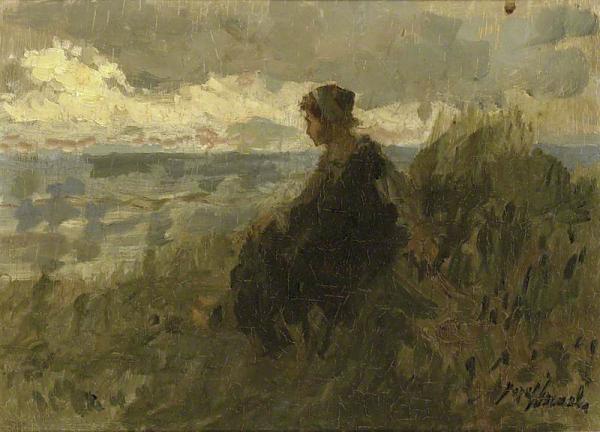
Fear A Bhata
[ XIX sec ]
Lyrics agus ceòl / Lyrics and music / Testo e musica / Paroles et musique / Sanat ja sävel:
Sìne NicFhionnlaigh [Jane Finlayson]
Air a chluich le / Performed by / Interpreti / Interprétée par / Laulavat :
1. Karen Matheson
2. Niamh Parsons
3.Giusi Pesenti
4. Christy-Lyn
Origine della canzone
The song "Fear a' bhàta" usually given as "traditional" was composed in the late 18th Century by Jane Finlayson of Tong, Lewis for a young Uig fisherman, Donald MacRae. The part of this story which is rarely told is that they married each other sometime after she wrote the song. The song appears in The Scottish Gael by James Logan, first published 1876. [ Excerpt from gaelic songs ]
This well-known song was written by Jane Finlayson (1775-1840) of Tong about her suitor, fisherman Donald Macrae of Uig. She laments Donald's continuing absence and wonders, in the... (Continues)
[ XIX sec ]
Lyrics agus ceòl / Lyrics and music / Testo e musica / Paroles et musique / Sanat ja sävel:
Sìne NicFhionnlaigh [Jane Finlayson]
Air a chluich le / Performed by / Interpreti / Interprétée par / Laulavat :
1. Karen Matheson
2. Niamh Parsons
3.Giusi Pesenti
4. Christy-Lyn
Origine della canzone
The song "Fear a' bhàta" usually given as "traditional" was composed in the late 18th Century by Jane Finlayson of Tong, Lewis for a young Uig fisherman, Donald MacRae. The part of this story which is rarely told is that they married each other sometime after she wrote the song. The song appears in The Scottish Gael by James Logan, first published 1876. [ Excerpt from gaelic songs ]
This well-known song was written by Jane Finlayson (1775-1840) of Tong about her suitor, fisherman Donald Macrae of Uig. She laments Donald's continuing absence and wonders, in the... (Continues)
'S tric mi sealltainn o'n chnòc a's àirde
(Continues)
(Continues)
Contributed by Riccardo Gullotta 2020/6/30 - 23:23
Gur milis Mòrag
Anonymous
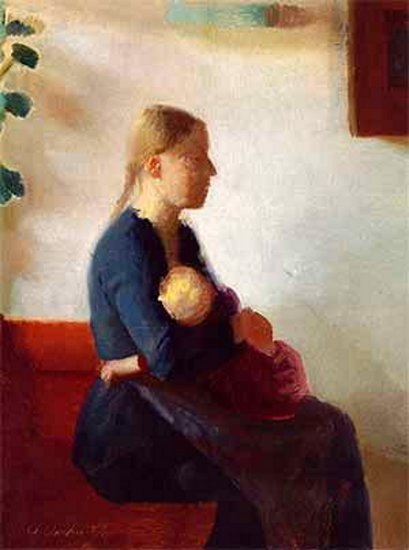
Gur milis Mòrag
Lyrics agus ceòl / Lyrics and music / Testo e musica / Paroles et musique / Sanat ja sävel:
Anonymous
Air a chluich le / Performed by / Interpreti / Interprétée par / Laulavat :
Caitlin Nic Aonghais [ Kathleen MacInnes ]
Premessa
E’ una nenia scozzese delle Ebridi, riscoperta nella prima metà del Novecento. Grazie all’intellettuale Seamas MacEanraig, poeta e scrittore ,studioso delle tradizioni scozzesi, riusciamo a comprendere il suo significato. MacEanraig collaborò con Flora MacNeil, figlia di Ann Gillies MacNeil, nate a Barra, la più meridionale delle Ebridi esterne. Ann Gillies fu la cantante che contribuì alla notorietà di questa canzone, come si può leggere nel libretto . Questo libretto, da quanto abbiamo potuto appurare, è il documento più datato che fa riferimento alla nenia con testo e spartito.
La nenia
Una donna racconta della sua situazione... (Continues)
Lyrics agus ceòl / Lyrics and music / Testo e musica / Paroles et musique / Sanat ja sävel:
Anonymous
Air a chluich le / Performed by / Interpreti / Interprétée par / Laulavat :
Caitlin Nic Aonghais [ Kathleen MacInnes ]
Premessa
E’ una nenia scozzese delle Ebridi, riscoperta nella prima metà del Novecento. Grazie all’intellettuale Seamas MacEanraig, poeta e scrittore ,studioso delle tradizioni scozzesi, riusciamo a comprendere il suo significato. MacEanraig collaborò con Flora MacNeil, figlia di Ann Gillies MacNeil, nate a Barra, la più meridionale delle Ebridi esterne. Ann Gillies fu la cantante che contribuì alla notorietà di questa canzone, come si può leggere nel libretto . Questo libretto, da quanto abbiamo potuto appurare, è il documento più datato che fa riferimento alla nenia con testo e spartito.
La nenia
Una donna racconta della sua situazione... (Continues)
Gur milis Mòrag
(Continues)
(Continues)
Contributed by Riccardo Gullotta 2020/5/22 - 18:47
Cumha Mhic Criomain
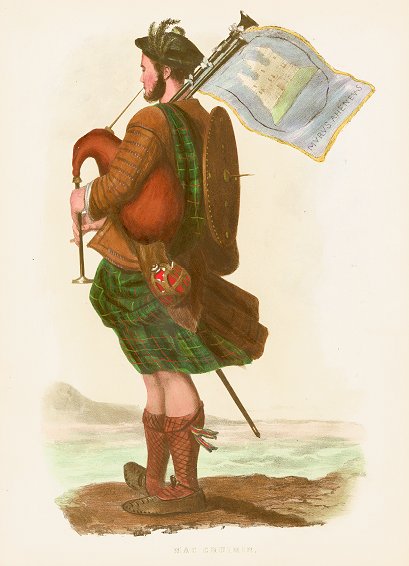
[1745-46]
La leggenda vuole che sia stata composta da Donald Ban MacCrimmon, suonatore di cornamusa ufficiale del clan MacLeod.
Una parte della tradizione attribuisce il testo alla sorella di lui.
Testo in gaelico trovato su Mudcat Café
Quella dei MacCrimmon di Borreraig, Dunvegan, Isola di Skye, è stata una delle più importanti dinastie di suonatori di cornamusa di Scozia. La loro scuola era la più rinomata delle Highlands.
L'ultimo piper della famiglia, in linea diretta, è stato Black John MacCrimmon, morto ultranoventenne nel 1822.
Donald "Il Biondo" – questo credo significhi Bàn – prese parte alla guerra tra i giacobiti di Bonnie Prince Charlie (Charles Edward Stuart) e la corona britannica (Giorgio II di Honnover).
Il clan MacLeod, cui i MacCrimmon erano legati, sosteneva gli inglesi.
Il 23 dicembre 1745, Donald Ban fu catturato dai giacobiti nel corso della battaglia di Inverurie.... (Continues)
La leggenda vuole che sia stata composta da Donald Ban MacCrimmon, suonatore di cornamusa ufficiale del clan MacLeod.
Una parte della tradizione attribuisce il testo alla sorella di lui.
Testo in gaelico trovato su Mudcat Café
Quella dei MacCrimmon di Borreraig, Dunvegan, Isola di Skye, è stata una delle più importanti dinastie di suonatori di cornamusa di Scozia. La loro scuola era la più rinomata delle Highlands.
L'ultimo piper della famiglia, in linea diretta, è stato Black John MacCrimmon, morto ultranoventenne nel 1822.
Donald "Il Biondo" – questo credo significhi Bàn – prese parte alla guerra tra i giacobiti di Bonnie Prince Charlie (Charles Edward Stuart) e la corona britannica (Giorgio II di Honnover).
Il clan MacLeod, cui i MacCrimmon erano legati, sosteneva gli inglesi.
Il 23 dicembre 1745, Donald Ban fu catturato dai giacobiti nel corso della battaglia di Inverurie.... (Continues)
Dh' aidh ceò nan stùc mu aodann Chuilinn,
(Continues)
(Continues)
Contributed by Bernart Bartleby 2020/4/5 - 20:44
Song Itineraries:
From olden times: Songs against war, inside war, around war
Hallaig
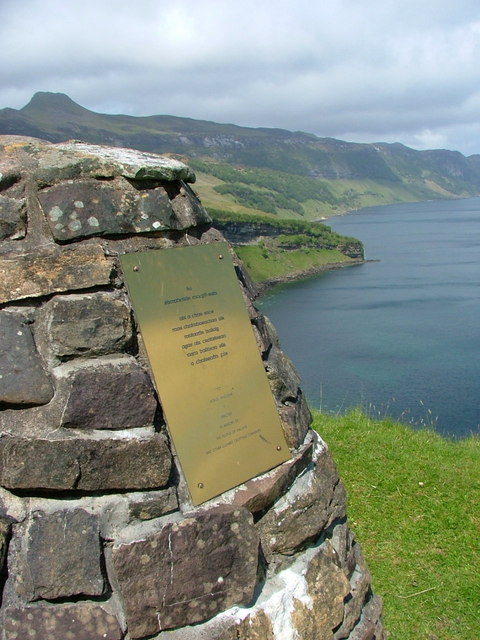
[1952]
Poesia di Somhairle MacGill-Eain (Sorley MacLean)
An Gairm, Edimburgo 1952
A poem by Somhairle MacGill-Eain (Sorley MacLean)
An Gairm, Edinburgh 1952
Poème de Somhairle MacGill-Eain (Sorley MacLean)
An Gairm, Édimbourg 1952
Somhairle MacGill-Eainin (Sorley MacLeanin) runo
An Gairm, Edinburgh 1952
Raasay, in gaelico scozzese Ratharsair, nelle isole Ebridi Interne; un'isola di ventiquattro chilometri quadrati di superficie, con centonovanta residenti il trentasei per cento dei quali, secondo le statistiche, pratica e usa ancora il gaelico. Un tempo, il gaelico era stata la lingua dell'intera popolazione, e anche di Somhairle MacGill-Eain, che però era nato a Osgaig, nella vicinissima e più grande isola di Skye, il 26 ottobre 1911. Somhairle MacGill-Eain fu un grande giocatore di shinty, l'antico hockey scozzese, ed un insegnante scolastico di simpatie comuniste che lottò per... (Continues)
Poesia di Somhairle MacGill-Eain (Sorley MacLean)
An Gairm, Edimburgo 1952
A poem by Somhairle MacGill-Eain (Sorley MacLean)
An Gairm, Edinburgh 1952
Poème de Somhairle MacGill-Eain (Sorley MacLean)
An Gairm, Édimbourg 1952
Somhairle MacGill-Eainin (Sorley MacLeanin) runo
An Gairm, Edinburgh 1952
Raasay, in gaelico scozzese Ratharsair, nelle isole Ebridi Interne; un'isola di ventiquattro chilometri quadrati di superficie, con centonovanta residenti il trentasei per cento dei quali, secondo le statistiche, pratica e usa ancora il gaelico. Un tempo, il gaelico era stata la lingua dell'intera popolazione, e anche di Somhairle MacGill-Eain, che però era nato a Osgaig, nella vicinissima e più grande isola di Skye, il 26 ottobre 1911. Somhairle MacGill-Eain fu un grande giocatore di shinty, l'antico hockey scozzese, ed un insegnante scolastico di simpatie comuniste che lottò per... (Continues)
‘Tha tìm, am fiadh, an coille Hallaig’
(Continues)
(Continues)
Contributed by Riccardo Venturi 2020/1/21 - 00:04
Iain MacPhaidein: Oidhche mhath leibh
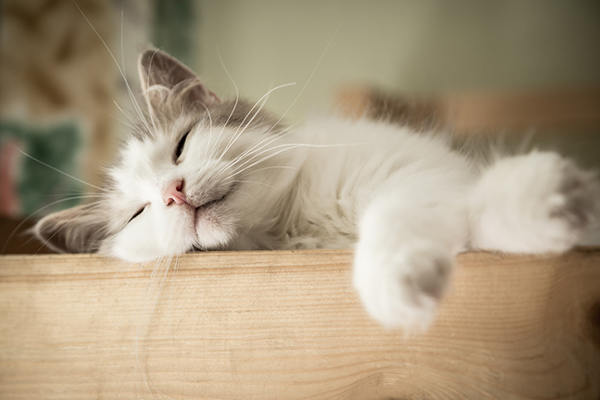
[1890]
This is called the Scottish parting song. It was written in 1890 by the railwayman and poet Iain McPhaidein (known in English as John MacFadyen, 1850-1935) in his native Scottish Gaelic. The poem is set to a Scottish traditional tune; it was first published in the collection An t-Eileanach: Original Gaelic Songs, Poems and Readings. This is something I want to dedicate to all of you: a goodnight song from someone who used to never sleep. Now something has changed; all the drugs and pills I have to take for my health problems are turning me into a dormouse, and this is rather new to me. So, I beg your pardon: I never answer to emails, I feel evanescent and swaying, make dreams in strange languages, keep clear of humans, solve complicated rebuses in my sleep and often have contradictory reactions and rude behaviours. I admit I've always been a galenpanna, and often to such a level you... (Continues)
This is called the Scottish parting song. It was written in 1890 by the railwayman and poet Iain McPhaidein (known in English as John MacFadyen, 1850-1935) in his native Scottish Gaelic. The poem is set to a Scottish traditional tune; it was first published in the collection An t-Eileanach: Original Gaelic Songs, Poems and Readings. This is something I want to dedicate to all of you: a goodnight song from someone who used to never sleep. Now something has changed; all the drugs and pills I have to take for my health problems are turning me into a dormouse, and this is rather new to me. So, I beg your pardon: I never answer to emails, I feel evanescent and swaying, make dreams in strange languages, keep clear of humans, solve complicated rebuses in my sleep and often have contradictory reactions and rude behaviours. I admit I've always been a galenpanna, and often to such a level you... (Continues)
Soraidh leibh is oidhche mhath leibh,
(Continues)
(Continues)
Contributed by Riccardo Venturi 2019/5/9 - 22:08
Òran do dh’Iain Dòmhnallach
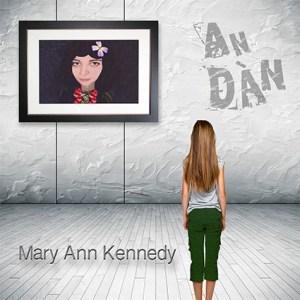
2017
An Dàn
Word came home that renewed sorrow and sadness for us”
MA: My father, Alasdair, came from Tiree, a low, sandy, fertile island, farthest out into the Atlantic of the Inner Hebrides – the first port-of-call on the Shipping Forecast. He would have been quietly satisfied at seeing this Tiree collaboration.
In 2015, I had the honour of writing the soundtrack to a BBC documentary following fellow Tirisdeach, Prof. Donald Meek, in the footsteps of his great-uncle John MacDonald, killed in the Great War, and those of the man whose life he saved in sacrificing his own – 2nd Lt. Jock Stewart. At the heart of the music were two poems, one of which was this one. Ìrig’s words are as poignant and eloquent as any in the great Gaelic poetic tradition of eulogy and elegy. Jock spent most of his post-war life in Ghana and South Africa: I used a Tswana song about homeland, ‘Ko Gae, Ko Gae’,... (Continues)
An Dàn
Word came home that renewed sorrow and sadness for us”
MA: My father, Alasdair, came from Tiree, a low, sandy, fertile island, farthest out into the Atlantic of the Inner Hebrides – the first port-of-call on the Shipping Forecast. He would have been quietly satisfied at seeing this Tiree collaboration.
In 2015, I had the honour of writing the soundtrack to a BBC documentary following fellow Tirisdeach, Prof. Donald Meek, in the footsteps of his great-uncle John MacDonald, killed in the Great War, and those of the man whose life he saved in sacrificing his own – 2nd Lt. Jock Stewart. At the heart of the music were two poems, one of which was this one. Ìrig’s words are as poignant and eloquent as any in the great Gaelic poetic tradition of eulogy and elegy. Jock spent most of his post-war life in Ghana and South Africa: I used a Tswana song about homeland, ‘Ko Gae, Ko Gae’,... (Continues)
Thàinig naigheachd don dùthaich
(Continues)
(Continues)
Contributed by Dq82 2017/12/26 - 17:40
Song Itineraries:
World War I (1914-1918)
O Sardigna patria nostra [O Sardigna, custa est s'ora]
![O Sardigna patria nostra [O Sardigna, custa est s'ora]](img/thumb/c56265_130x140.jpeg?1502049220)
Opera di Tom Thomson, proviene dalla una pagina Lyricstranslate.
A SHÀRDAINEA, AR DUTHAICH
(Continues)
(Continues)
Contributed by Riccardo Venturi 2017/8/6 - 21:43
L'Internationale

GAELICO SCOZZESE / SCOTTISH GAELIC
L'Internazionale in lingua gaelica scozzese contribuita a cura degli Utenti di GETchan (che ringraziamo). Il testo è ricavato da questa immagine .png, che è stata integralmente ricopiata per rendere il testo fruibile.
The Internationale in the Scottish Gaelic language, contributed by the Users of GETchan (whom we thank heartily). The lyrics are reproduced from this .png image which has been copied to make lyrics available. [CCG/AWS Staff]
The Internationale in the Scottish Gaelic language, contributed by the Users of GETchan (whom we thank heartily). The lyrics are reproduced from this .png image which has been copied to make lyrics available. [CCG/AWS Staff]
AN T-EADAR NÀISEANTACHAS
(Continues)
(Continues)
Contributed by The Users of GETchan 2016/7/12 - 11:36
Òran nan Raiders

2007
Songs from Cuilidh
A great song composed by Finlay Morrison about the men who were promised land in “A Land Fit for Heroes” if they went to fight in WW1. Those who returned got nothing, and so this group of men gathered together and raided the land they had been promised. I was fortunate to learn this song from the son of one of the Raiders, Alick MacAulay, in his house on the croft his father secured after disagreements with the landlord and a jail sentence. Eamon doubles up here on bouzouki and fiddle.
Songs from Cuilidh
A great song composed by Finlay Morrison about the men who were promised land in “A Land Fit for Heroes” if they went to fight in WW1. Those who returned got nothing, and so this group of men gathered together and raided the land they had been promised. I was fortunate to learn this song from the son of one of the Raiders, Alick MacAulay, in his house on the croft his father secured after disagreements with the landlord and a jail sentence. Eamon doubles up here on bouzouki and fiddle.
O, ’s ann tha na diùlnaich thall
(Continues)
(Continues)
Contributed by DoNQuijote82 2015/3/7 - 12:07
Song Itineraries:
World War I (1914-1918)
Fuadach nan Gàidheal
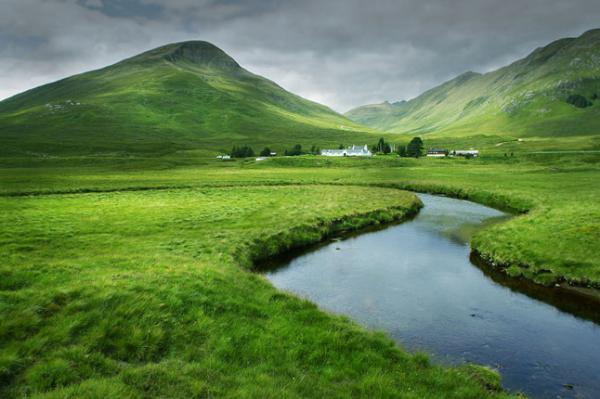
[seconda metà 800]
Parole di Henry Whyte, Fionn il suo nome di penna, scrittore scozzese in lingua gaelica, nella raccolta intitolata “The Celtic Garland of Gaelic Songs and Readings: Translation of Gaelic and English Songs” edita a Glasgow nel 1920.
Sulla melodia della tradizionale “Lord Lovat's Lament” (un classico per cornamusa)
Testo trovato qui e confrontato con quello (meno esatto e privo di accenti) presente su Mudcat Café
Tra la seconda metà del 700 e la prima dell’800 le popolazioni rurali delle Highlands scozzesi furono costrette, prima consensualmente poi con la forza, ad abbandonare le loro terre. I grandi proprietari avevano infatti constatato che una pecora forniva più reddito di un contadino e che le Highlands liberate dagli esseri umani che le abitavano avrebbero fornito pascoli sterminati per immense greggi. L’innovazione voluta dai landowners fu sostenuta – com’è ovvio... (Continues)
Parole di Henry Whyte, Fionn il suo nome di penna, scrittore scozzese in lingua gaelica, nella raccolta intitolata “The Celtic Garland of Gaelic Songs and Readings: Translation of Gaelic and English Songs” edita a Glasgow nel 1920.
Sulla melodia della tradizionale “Lord Lovat's Lament” (un classico per cornamusa)
Testo trovato qui e confrontato con quello (meno esatto e privo di accenti) presente su Mudcat Café
Tra la seconda metà del 700 e la prima dell’800 le popolazioni rurali delle Highlands scozzesi furono costrette, prima consensualmente poi con la forza, ad abbandonare le loro terre. I grandi proprietari avevano infatti constatato che una pecora forniva più reddito di un contadino e che le Highlands liberate dagli esseri umani che le abitavano avrebbero fornito pascoli sterminati per immense greggi. L’innovazione voluta dai landowners fu sostenuta – com’è ovvio... (Continues)
Gur e mise tha tùrsach,
(Continues)
(Continues)
Contributed by Bernart Bartleby 2014/3/5 - 14:22
An eala bhàn
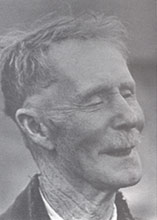
[1916]
Written by Dòmhnall Ruadh Chorùna (Donald McDonald)
Music: Traditional
Recorded by: Capercaillie ["Secret People" (1993)], Calum Kennedy, Donnie Munro, Julie Fowlis
Scritta da Dòmhnall Ruadh Chorùna (Donald McDonald)
Musica: Tradizionale
Incisa da: Capercaillie ["Secret People" (1993)], Calum Kennedy, Donnie Munro, Julie Fowlis
Scritta nel 1916 da Dòmhnall Ruadh Chorùna (Donald MacDonald), poeta gàidhlig del secolo scorso, mentre combatteva nelle trincee della Somme. E' indirizzata alla sua amata di allora, tal Mhagaidh Nic Leoid...
This song was written by the famous bard while he was fighting in France during the Great War. Faced with the horrors of war, his mind is fixed with thoughts of home and the woman he loves. Sitting in a cold trench he wonders if he will ever see his homeland or his love again, 'with the clamour of death in my ears, with no hope of returning victorious,... (Continues)
Written by Dòmhnall Ruadh Chorùna (Donald McDonald)
Music: Traditional
Recorded by: Capercaillie ["Secret People" (1993)], Calum Kennedy, Donnie Munro, Julie Fowlis
Scritta da Dòmhnall Ruadh Chorùna (Donald McDonald)
Musica: Tradizionale
Incisa da: Capercaillie ["Secret People" (1993)], Calum Kennedy, Donnie Munro, Julie Fowlis
Scritta nel 1916 da Dòmhnall Ruadh Chorùna (Donald MacDonald), poeta gàidhlig del secolo scorso, mentre combatteva nelle trincee della Somme. E' indirizzata alla sua amata di allora, tal Mhagaidh Nic Leoid...
This song was written by the famous bard while he was fighting in France during the Great War. Faced with the horrors of war, his mind is fixed with thoughts of home and the woman he loves. Sitting in a cold trench he wonders if he will ever see his homeland or his love again, 'with the clamour of death in my ears, with no hope of returning victorious,... (Continues)
Gur duilich leam mar tha mi
(Continues)
(Continues)
Contributed by Alessandro 2010/2/17 - 12:36
Song Itineraries:
Anti War Love Songs
Fuaim a bhlair
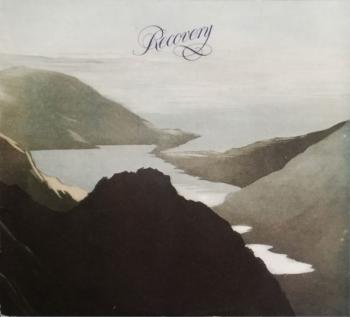
[1981]
Album "Recovery"
Album "Recovery"
Fuaim a' bhlair, ceol a' chogaidh
(Continues)
(Continues)
Contributed by Alessandro 2010/2/10 - 12:52
10. Amazing Grace
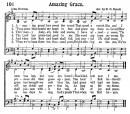
Questa è la versione in Gaelico Scozzese (Gàidhlig) di ''Amazing Grace''. Il Gaelico Scozzese è una lingua celtica che ha molto in comune con il Gaelico Irandese (Gaeilge) e il Manx dell'Isola di Man (Gaelg).
O MIORBHAIL GRÀIS
(Continues)
(Continues)
Contributed by Jvan 2008/7/20 - 20:03
Na Gaidheil am Basra
by Norman McArthur, 2006
From/da Songs For Change
"Norman MacArthur is a piper and singer/songwriter in the Gaelic group Meantime. Along with his bandmates he is one of very few who are actually writing contemporary songs in Gaelic. 'I wrote this song after seeing images on the news of Scottish soldiers in the the Black Watch regiment marching into Basra in Iraq being led by the pipes playing The Black Bear. I felt quite confused by what I felt. On the one hand I was proud of them, on the other I was angry. Scottish soldiers fighting and dying under a British flag. Indeed fighting under an American flag in an illegal war. It reminded me of footage from the First and Second World Wars yet here we are again listening to and following the piper playing the same old tune.'"
From/da Songs For Change
"Norman MacArthur is a piper and singer/songwriter in the Gaelic group Meantime. Along with his bandmates he is one of very few who are actually writing contemporary songs in Gaelic. 'I wrote this song after seeing images on the news of Scottish soldiers in the the Black Watch regiment marching into Basra in Iraq being led by the pipes playing The Black Bear. I felt quite confused by what I felt. On the one hand I was proud of them, on the other I was angry. Scottish soldiers fighting and dying under a British flag. Indeed fighting under an American flag in an illegal war. It reminded me of footage from the First and Second World Wars yet here we are again listening to and following the piper playing the same old tune.'"
Chunna mise a-raoir
(Continues)
(Continues)
Contributed by Riccardo Venturi 2007/3/11 - 20:34
L'Internationale

GAELICO IRLANDESE [1] / IRISH GAELIC [1]
La versione standard di due strofe in gaelico irlandese di Máirtín Ó Cadhain. Dal Sito del Communist Party of Ireland/Páirtí Cumannach na hÉireann (Partito Comunista Irlandese). La consigliamo per la sua autentica bellezza.
Máirtín Ó Cadhain's standard two-stanza version in Irish Gaelic,
from the Official Website of the Communist Party of Ireland/Páirtí Cumannach na hÉireann. It is recommended for its real beauty.
Máirtín Ó Cadhain's standard two-stanza version in Irish Gaelic,
from the Official Website of the Communist Party of Ireland/Páirtí Cumannach na hÉireann. It is recommended for its real beauty.
AN tIDIRNAISIÚNTA
(Continues)
(Continues)
2005/6/8 - 16:15
×
![]()


Leathbhadoiri